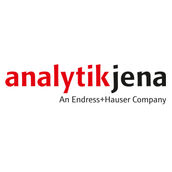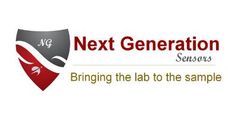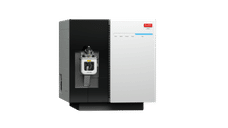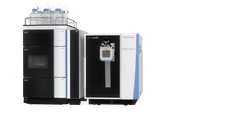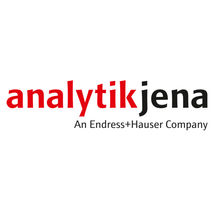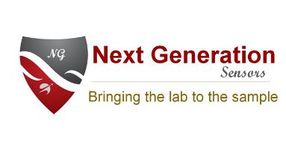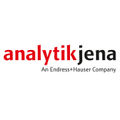91 Mass Spectrometers Manufacturers From Around The World
The list of mass spectrometer manufacturers is long. But hardly any site on the Internet actually offers a complete overview of the suppliers on the market. We can help: Here you can find all mass spectrometer manufacturers at a glance.
Are you wondering what you should look out for when choosing a supplier? Our guide gives you valuable tips on choosing the right manufacturer.
91 Mass Spectrometers Manufacturers From Around The World
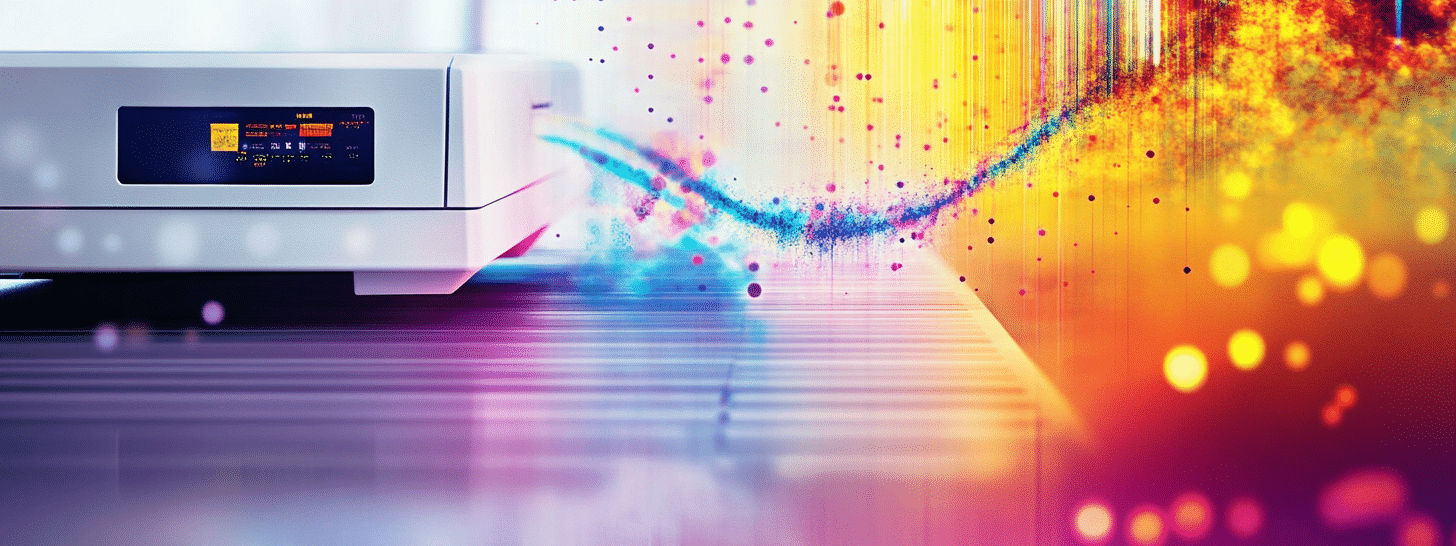
The list of mass spectrometer manufacturers is long. But hardly any site on the Internet actually offers a complete overview of the suppliers on the market. We can help: Here you can find all mass spectrometer manufacturers at a glance.
Are you wondering what you should look out for when choosing a supplier? Our guide gives you valuable tips on choosing the right manufacturer.
Companies by products
These products might interest you
See the theme worlds for related content
Topic World Spectroscopy
Investigation with spectroscopy gives us unique insights into the composition and structure of materials. From UV-Vis spectroscopy to infrared and Raman spectroscopy to fluorescence and atomic absorption spectroscopy, spectroscopy offers us a wide range of analytical techniques to precisely characterize substances. Immerse yourself in the fascinating world of spectroscopy!

Topic World Spectroscopy
Investigation with spectroscopy gives us unique insights into the composition and structure of materials. From UV-Vis spectroscopy to infrared and Raman spectroscopy to fluorescence and atomic absorption spectroscopy, spectroscopy offers us a wide range of analytical techniques to precisely characterize substances. Immerse yourself in the fascinating world of spectroscopy!
Mass spectrometers manufacturers from around the world by country
Mass spectrometers manufacturers from around the world by industry
Find the right mass spectrometer manufacturer: What you should know
Mass spectrometry is an indispensable analytical method used to identify and quantify molecules by measuring their mass. A mass spectrometer breaks down molecules into ionised fragments and measures their mass, which allows conclusions to be drawn about the chemical structure and composition of the original substance.
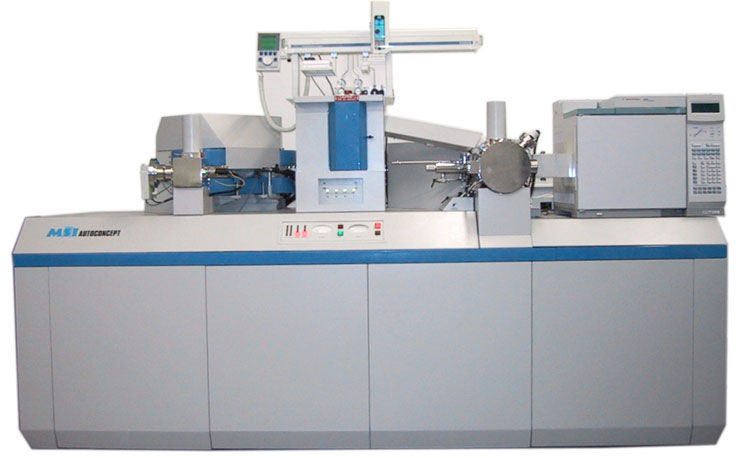
Mass spectrometry has taken on a central role in sectors such as the life sciences, biotechnology and the pharmaceutical industry. In the pharmaceutical industry, it is essential for the development and quality control of drugs, as it enables the precise analysis of complex chemical compounds. In the life sciences, mass spectrometry is used to research biological processes and to identify biomarkers that can provide information about the health status of organisms. Biotechnology uses mass spectrometry to analyse proteins, metabolites and other biomolecules, which is essential for the development of new biotechnological products and therapies. Due to its high precision and sensitivity, mass spectrometry is an indispensable tool in these industries for promoting innovation and ensuring the highest quality standards.
Important criteria when selecting a mass spectrometer manufacturer
When selecting a suitable mass spectrometer manufacturer for applications in the life sciences, biotechnology and pharmaceutical industries, there are several key factors to ensure that the chosen instrument fulfils the specific requirements.
Technological innovations
Mass spectrometry is a technologically challenging field that is continuously driven by breakthroughs. Manufacturers at the forefront of the life sciences, biotechnology and pharmaceutical industries are investing heavily in research and development to develop technologies that enable higher sensitivities, more accurate measurements and faster analysis times. Thermo Fisher Scientific, Agilent Technologies and Bruker are known for their innovation and have developed new mass spectrometer models specifically tailored to the needs of these industries. For example, Thermo Fisher's Orbitrap technology enables extremely precise analysis of proteins and metabolites, which is of great importance in proteomics and metabolomics, two key disciplines in the life sciences.
Quality standards
In the pharmaceutical industry and biotechnology, compliance with the highest quality standards is essential. Leading mass spectrometer manufacturers adhere to strict international standards such as ISO 9001 and specialised pharmaceutical standards such as GMP (Good Manufacturing Practice). These certifications ensure that the mass spectrometers manufactured meet the highest standards and are produced in accordance with best practice. Companies such as Waters Corporation and Shimadzu place particular emphasis on compliance with these standards to ensure that their equipment meets the requirements of regulated industries such as pharmaceuticals and biotechnology.
Customer support and service
The use of products for mass spectrometry in the life sciences and pharmaceutical industries requires not only high-quality equipment, but also comprehensive after-sales support. A good manufacturer will provide support through user training, regular maintenance and rapid response to technical problems. This support is especially important as downtime in the pharmaceutical and biotechnology industries can cause costly delays. Manufacturers such as Waters Corporation and Agilent Technologies are known for their excellent customer service, which includes customised support packages tailored to the specific needs of companies in these industries.
Price-performance ratio
Investing in a laboratory instrument of this size is a strategic decision in the life sciences, biotechnology and pharmaceutical industries. The cost of mass spectrometry instruments can vary greatly depending on the model and the specific requirements. While high-end instruments such as those from Thermo Fisher and Bruker are aimed at specialised applications such as proteomics and biopharmaceutical product development, manufacturers such as Shimadzu and Agilent offer more affordable options for routine laboratories that still meet the high demands of these industries. Finding a balance between price and performance that takes into account both technical requirements and budget is therefore crucial.
List of leading mass spectrometer manufacturers
Several companies have established themselves as leading manufacturer in the life sciences, biotechnology and pharmaceutical industries. These manufacturers are characterised by their many years of experience, their broad product portfolio and their specialisation in these highly complex sectors.
Thermo Fisher Scientific
Thermo Fisher Scientific, based in Waltham, Massachusetts, USA, is one of the world's largest and best-known manufacturers of mass spectrometers. The company offers a wide range of systems specifically tailored to the requirements of the life sciences and pharmaceutical industries. Thermo Fisher's Orbitrap models are known for their high resolution and sensitivity and are widely used in proteomics and metabolomics, where they enable the detailed analysis of proteins and metabolites. In addition, Thermo Fisher develops advanced software solutions that simplify data analysis and increase efficiency in biotechnological and pharmaceutical applications.
Agilent Technologies
Agilent Technologies, headquartered in Santa Clara, California, USA, is another leading provider. Agilent is particularly well known for its innovations in triple quadrupole mass spectrometry, which is widely used in the quantitative analysis of small molecules, a key aspect of pharmaceutical research. Agilent offers models specifically designed to analyse biomolecules and pharmaceutical substances, making them a preferred choice for companies in the pharmaceutical and biotechnology industries.
Bruker Corporation
Bruker Corporation, based in Billerica, Massachusetts, USA, is known for its highly specialised analytical instruments. Bruker has established itself particularly in research and offers systems such as the timsTOF Pro, which is based on Trapped Ion Mobility Spectrometry (TIMS) and offers exceptionally high resolutions. This technology is invaluable in proteomics and metabolomics, where it provides detailed insights into complex biological processes. Bruker is at the forefront of developing new technologies that push the boundaries of mass spectrometry and enable innovative applications in the life sciences and pharmaceutical industries.
Shimadzu Corporation
Shimadzu, based in Kyoto, Japan, is a company with a long tradition of manufacturing scientific instruments. Shimadzu's instruments are known for their reliability and ease of use, making them particularly popular in routine laboratories in the life sciences and pharmaceutical industries. The company offers a wide range of instruments, including quadrupole and time-of-flight mass spectrometers (TOF-MS), which are widely used in the analysis of proteins and metabolites. Shimadzu places great emphasis on integrating mass spectrometry into standardised processes to increase efficiency and reproducibility in biotechnological research.
Waters Corporation
Waters Corporation, headquartered in Milford, Massachusetts, USA, is a leading manufacturer, particularly in the field of liquid chromatography-mass spectrometry (LC-MS). Waters is known for its ACQUITY range of ultra performance liquid chromatography (UPLC) systems and the SYNAPT range of mass spectrometers, which are recognised for their high sensitivity and specificity. These systems are particularly important in the pharmaceutical industry and clinical research, where they are used to analyse complex biological samples and develop new drugs. Waters has built a reputation as a trusted partner for companies in the life sciences and pharmaceutical industries by providing innovative solutions to demanding analytical challenges.
Trends and developments in the field of mass spectrometry
Mass spectrometry in life sciences, biotechnology and the pharmaceutical industry is constantly evolving. There are some exciting trends and developments that will shape the future of this technology.
Future technologies
One notable trend is the development of highly specialised instruments for specific applications in the life sciences and pharmaceutical industry. These include miniaturised mass spectrometers that can be used in clinical environments or in biotechnological production to perform fast and precise analyses on site. These innovations make it possible to bring the analysis process closer to the sampling site, thereby reducing reaction times and increasing efficiency.
Another important trend is the integration of mass spectrometry into automated workflows, particularly in the pharmaceutical industry. High-throughput devices enable faster analysis of large sample volumes, which significantly increases the efficiency of drug development. These developments are crucial to meet the growing demand for fast and reliable analytical methods in these industries.
Market developments
The market for highly specialised laboratory equipment is growing steadily, driven by the increasing importance of the life sciences, biotechnology and pharmaceutical industries. Growth is particularly strong in emerging markets such as Asia and Latin America, where there is increased investment in modern analytical laboratories.
Frequently asked questions (FAQ) about mass spectrometer manufacturers
What should I consider when choosing a manufacturer for applications in the life sciences?
Important criteria when choosing a manufacturer are technological innovations, compliance with quality standards, the customer support offered and the price-performance ratio. In the life sciences and pharmaceutical industry, it is crucial to choose a manufacturer that not only offers high-quality devices, but also ensures long-term support to guarantee the operation and reliability of the devices.
How important is customer support in the pharmaceutical industry?
Customer support is crucial, as mass spectrometers in the pharmaceutical industry are complex devices whose continued operation is critical to success. Good post-sales support can minimise downtime and ensure that the instrument is always working optimally, which is of paramount importance in pharmaceutical research and development.
What are the price ranges for life science applications?
Prices for mass spectrometer instruments vary widely, depending on the manufacturer and specific requirements. Simple models for routine applications in biotechnology can start at around 50,000 euros, while specialised high-end instruments used for proteomics and drug development can cost several hundred thousand euros. The choice of the right model depends on the specific requirements and the available budget.
What are the most important trends in mass spectrometry for the life sciences and pharmaceutical industry?
The most important trends include miniaturisation for on-site use, the development of high-throughput systems for pharmaceutical research and increasing integration into automated workflows. These trends will continue to drive mass spectrometry forward in the coming years and enable new applications in the life sciences and pharmaceutical industry.
Conclusion
Choosing the right mass spectrometer manufacturer for life sciences, biotechnology and pharmaceutical applications is crucial to fulfil the specific requirements of your research or industrial application. By carefully considering the technological innovations, quality standards, customer support and price/performance ratio of the leading manufacturers, you can make an informed decision. In a constantly evolving field such as mass spectrometry, it is also important to keep an eye on current trends and developments in order to anticipate future needs and opportunities and strengthen your position in these dynamic industries.
Further links
Product pages that may also be of interest to you
- ICP mass spectrometers
- Quadrupole mass spectrometers
- TOF mass spectrometers
- Spectrometers
- NIR spectrometers
- FT-IR spectrometers
- Raman spectrometer
- UV/Vis spectrometers
Manufacturer pages that might also interest you
Haven't found the right company yet?
The bionity.com company search
Start your targeted search now with a wide selection of filter options. Our database includes 8,669 life science companies from all over the world. Here you can easily find the right provider for your search, including contact options.

